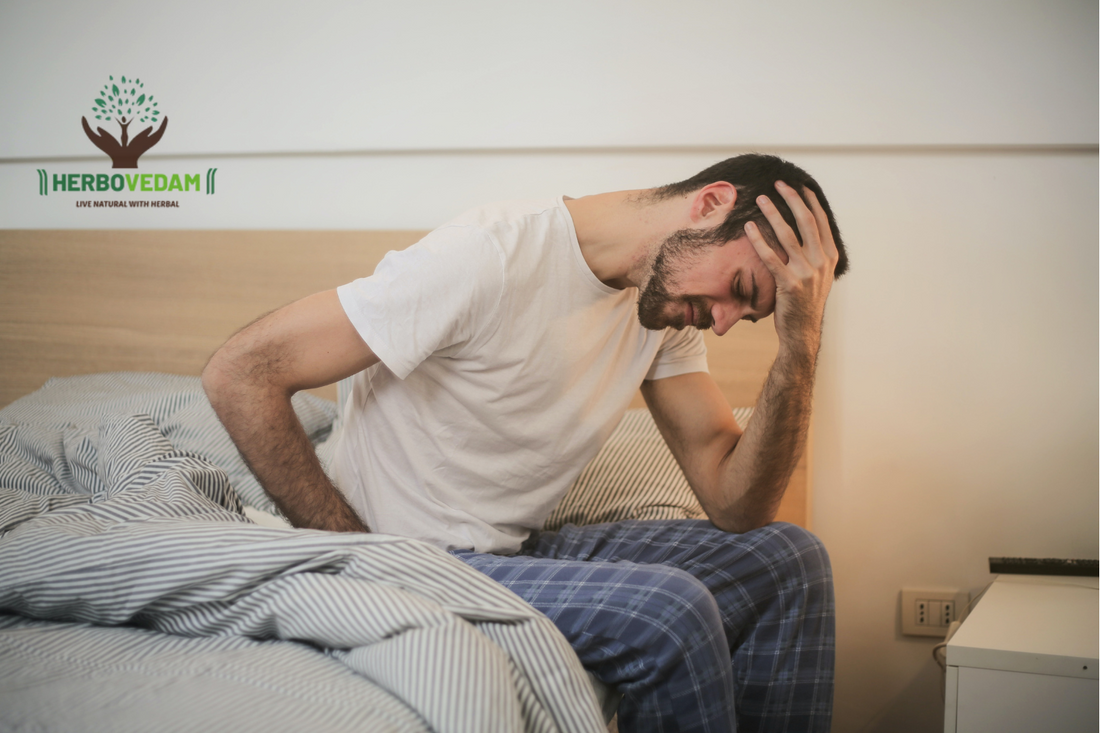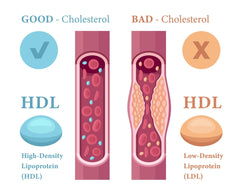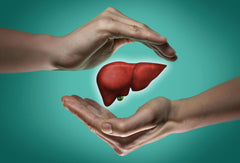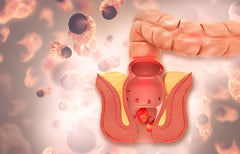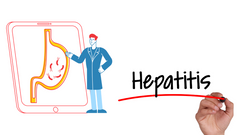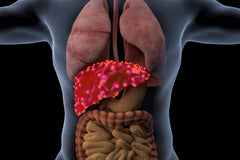Introduction
IBS causes frequent diarrhea, bloating, gas, and abdominal cramping. And all the symptoms of IBS patients indicate major disorders in intestinal functions. If you experience repetitive dysfunction in your bowel movements, it can be IBS, which affects the entire digestive system for a long time.

Definition of IBS:
What Is IBS?
Due to severe intestinal dysfunction, people who go through the worst condition of bowel movements are diagnosed as IBS patients. Acute pain & sharp stomach cramping are associated with Irritable Bowel Syndrome.
IBS does not lead to threats to the overall health of patients. But IBS makes life worst with frequent bowel movements and critical digestive problems.
What Are The Major Symptoms of Irritable Bowel Syndrome?
IBS symptoms always differ from each other. But a group of bowel complications is experienced by IBS patients. With IBS, people experience critical digestive problems, which can be triggered anytime due to having any specific foods.
- During bowel movements, IBS patients have chronic cramping in the stomach, bloating, and abdominal pain.
- IBS patients' regular bowel movement is directly affected due to intestinal infection.
- IBS patients have to experience frequent bowel movements.
- If you have IBS, you can feel a heart-burning sensation due to accumulated gas in the stomach.
- IBS patients have to face complications of abdominal pain due to the presence of mucus in their stool.
Causes of IBS

The real reasons for digestive complications associated with IBS are still under research. Generally, a group of factors plays a crucial role in causing IBS complications:
Intestinal Muscle Contraction
Intestinal walls contain aligned muscle layers, which contract to push the food toward the pathways of the digestive tract. While the muscle contraction becomes vigorous and longer than usual, the intestine is filled with gas, leading to bloating and chronic diarrhea with mucus. On the other hand, regular and slow muscle contractions in intestine walls push food slowly through the passage and lead to dry mucus-free stools.
Disorder In the Nervous System
Generally, abdominal passages stretch to release gas or stool. So, during bowel movement, the connective nerves of the digestive system lead to discomfort. Currently, the weak coordination between intestinal nerves and the brain causes overreaction in digestive tracts. As a result, IBS patients experience abdominal pain and chronic diarrhea or constipation.
Bacterial Infection
IBS can be triggered due to a severe level of stretch caused by viruses or bacteria. This specific condition is termed Gastroenteritis. Sometimes, the reaction of antibiotics, anti-depressants, and sorbitol-based medications leads to the overgrowth of harmful bacteria, killing good bacteria in the intestine. As a result, Gastroenteritis causes Irritable Bowel Syndrome.
Is Gastroenteritis Related To IBS?
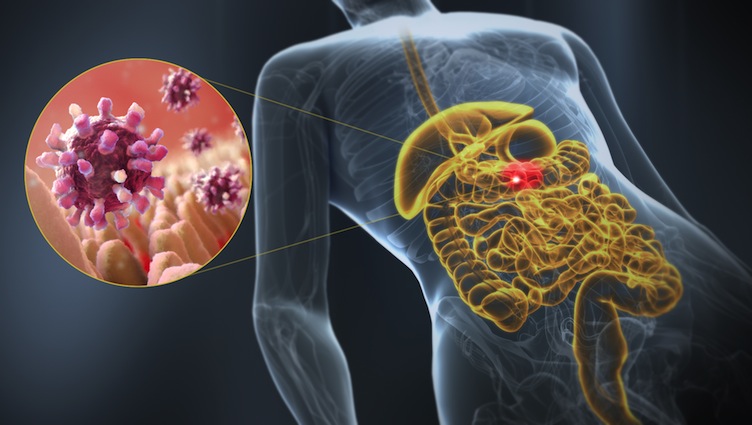
Both the stomach & intestine are considered as the gastrointestinal tract. While the overgrowth of viruses and bacterias cause erosive Gastroenteritis, patients experience tarry bowel movements. And all the discomforts of chronic diarrhea lead to IBS.
Stressful Earlier Life
IBS is caused by stress-sensitive disorders, which affect the coordination between the brain and intestinal nerves. Research claims chronic stress in earlier life is responsible for the lack of balance in the growth of gut bacteria. And overgrowth of gut bacteria leads to severe IBS symptoms. According to research, psychological stress directly impacts the actions of neuro-endocrine-immune pathways, which define the functions of the microbiota-gut-brain axis. So, the stress-led alterations in the gut-brain axis cause IBS.
Food Intolerances
Specific food intolerances are also responsible for IBS. Many people experience health-deteriorating reactions to gluten, fructose, starches, and lactose. And these reactions are termed food intolerance in medical science. So, while you intake any specific food or drinks which contain high amounts of fat, insoluble fiber, carbonated properties, and caffeine due to food intolerance, you can experience intense irritation in the gastrointestinal tract. And thus, food intolerance leads to IBS symptoms such as gas, bloating, pain in the abdomen, and diarrhea.
Common Facts of IBS:
At A Glance
- The latest research in Western countries shows that women are more prone to IBS than men. The IBS symptoms can be experienced in your young adulthood before 40.
- As a result of significant intestinal infection, IBS leads to the worst alteration in the patient's bowel movements.
- IBS (Irritable Bowel Syndrome) is quite common in both men & women.
- Restricted diet and changes in food habits help IBS patients control their worst conditions of bowel movements.
- If you go through severe symptoms of IBS, you must require proper medication, recommended by physicians.
- IBS is not associated with alteration or damage in bowel tissue, which can lead to colorectal cancer.
How Quickly Does An IBS Patient Face IBS Symptoms?
According to research, dietary FODMAPs in food trigger IBS symptoms. Dietary FODMAPs always lead to direct alteration in gut functionalities. So, while IBS patients intake high dietary FODMAPs-based food, they face irritable reactions within four hours.
The following points explain how IBS patients experience gut abnormalities after they intake FODAMPs rich meal:
What Factors Trigger IBS?
Gastro-colic Reflex
Gastro-colic reflexes play essential roles while the large intestine contracts rhythmically to pass the food contents. So, the normal gastro-colic reflex helps to lead to regular bowel movements. Generally, the gastro-colic reflex defines the urge for bowel movement after a meal.
Research says if you have IBS, your body goes through the complications of exaggerated gastro-colic reflex. Exaggerated gastro-colic reflex is a biological phenomenon that forces the intestine to contract more intensively. So, while IBS patients intake fatty meals and large amounts of cold drinks, the effects of exaggerated gastro-colic reflex trigger the IBS symptoms.
Abnormal Gut Motility
'Motility' is a biological process that defines gut movement due to abnormal gut motility; the stomach, intestine, and significant parts of the gut contract too quickly or slowly. As a result, IBS patients experience diarrhea due to quick gut contraction or constipation due to too slow contraction of the gut.
Gut Hypersensitivity
The FODMAP-rich meal increases gut hypersensitivity, which leads to severe IBS symptoms. While FODMAP properties start to be fermented in the intestine after meals, gas production expands the intestine. The sensitive intestinal nerves send signals to the brain about abdominal pain due to gas production. In this condition, the lack of coordination between the brain and intestinal nerves affects gut function, which leads to abnormal gut motility. So, due to gut hypersensitivity after taking meals, IBS patients experience severe alterations in bowel movements.
When You Should Go To Doctor With IBS Symptoms?
While you face the worst complications in your bowel habits, you need to consult a doctor to improve your health. The following IBS symptoms hint that you should go to the doctor immediately:
- Frequent Diarrhea
- Loose motion at night
- Sudden vomiting
- Weight loss
- Iron deficiency
- Burning sensation in the chest
- Lethargy
What Is The Ideal Diet For IBS Patients?
:max_bytes(150000):strip_icc()/an-overview-of-the-low-fodmap-diet-4693610-a-75ff2a81cb314258b9eec65bad92c37f.jpg)
Doctors always recommend a low-FODMAP diet. FODMAP foods contain specific groups of fermentable carbohydrates, heightening digestive issues such as stomach pain, bloating, gas, constipation, and diarrhea. So, if you have irritable bowel syndrome, you must follow a low-FODMAP diet.
For example, oranges, limes, papaya, and mandarins are low-FODMAP-based fruits. You must need clarification on whether a banana is a FODMAP food. For IBS patients, green banana is a better choice as low-FODMAP fruit. As ripened yellow banana contains Oligo-fructans, it is considered a high FODMAP fruit. So, IBS patients should avoid ripening bananas.
If you intake fresh tomatoes as salad, it is considered a low-FODMAP food. But, while you use canned tomato sauces, it contains high fructose. So, IBS patients are suggested to avoid canned tomatoes due high-FODMAP properties. Almonds & fresh coconuts also come into the list of low-FODMAP fruits.
Therefore, dairy products, processed foods, and certain fruits are restricted in the IBS diet.
Is IBS Related To Weight Loss?
IBS does not lead to weight loss directly, but if you are following a restricted diet for a long time, your body can experience a nutrition deficiency. In that case, IBS patients experience weight loss.
Treatment of IBS
Diagnosis of IBS
If you are experiencing acute discomforts in bowel movements atleast once a week for three months, then doctors ask about your stool consistency to be sure about the symptoms of IBS.
Doctors recommend the necessary tests to detect the disorders in the intestine:
Colonoscopy:
The health professionals at the diagnostic center use a flexible but small tube to determine the colon length.
CT Scan
This testing technology captures precise images of the pelvis and abdomen so doctors can identify the reasons for chronic belly pain.
Upper Endoscopy
This is a technology-driven testing process in which experts insert a flexible tube through your throat into the esophagus. The connective tube with a tiny camera from mouth to stomach detects the disorders in the digestive tract. With endoscopy, the collected fluid is tested to check the overgrowth of bacteria in the intestine.
All these testing helps doctors to be sure about the IBS complications of the patients.
IBS Medications
While IBS patients do not get effective results with home remedies and essential lifestyle changes, they require proper medications recommended by doctors.
Before starting doctor-recommended medication, you need to tell your doctor about all therapies and remedies you have already applied to get relief from IBS complications.
Generally, IBS drugs help:
- To control the fluctuations in muscle contractions in the intestine walls.
- Prevent long-term constipation.
- Improve chronic diarrhea complications.
If you are suffering from constipation, which is one of the significant IBS symptoms, then the American College of Gastroenterology recommends the following drugs:
- Lubiprostone
- Linaclotide
Frequently Asked Questions:
What Are The Common Symptoms of IBS?
The functionality orders in the large intestine define the symptoms of IBS. Due to a lack of balance in gut movement, the quick and intense contraction in the intestine causes loose bowel or diarrhea.
Similarly, abnormal gut motility also causes prolonged contraction of intestine muscles, which causes hard stool or constipation.
What IBS Symptoms Are Experienced By Women?
During menstruation, women have to go through the worst IBS symptoms. Women who suffer from irregular periods have experienced more IBS symptoms. During menstruation, women become victims of food intolerance, fatigue, cramping in the abdomen, bloating, etc.
What IBS Symptom is Experienced By Men?
Men experience similar IBS symptoms.
What Foods Should You Avoid With IBS?
FODMAP is such a type of carbohydrate which reduces the digestion quality. So, IBS patients should avoid FODMAP-rich meals. Generally, fermentable polyols, disaccharides, oligosaccharides, and monosaccharides are considered FODMAP. So, if IBS patients stop taking all these fermentable carbohydrate-based foods, they will reap health benifits.
How Stress Triggers IBS Symptoms?
IBS is the result of interrupted gastrointestinal responses. When stress level becomes high, the human body goes through critical biological interactions, directly impacting the connections or coordination between the gut and brain. So, excessive anger, depression, and anxiety cause stimulate the gut responses intensively. As a result, stressful events or incidents significantly trigger exaggerated gut reflexes.
What Are The Major Complications of IBS?
Poor Lifestyle
As IBS patients have to suffer not only from poor physical productivity but also from frustration. The fatigue & weakness triggered by a disturbed digestive system affects IBS patients' professional ability. Besides, long-term based restricted food habits and home-bounded lifestyles also hamper the social life of IBS patients.
Mood Swings
IBS patients must avoid spicy food, including processed foods and certain fruits. So, an IBS diet can lead to mineral and vitamin deficiency, while patients have to maintain a strict diet due to the high levels of food intolerance. As a result, IBS patients become deprived of a healthy lifestyle, and this condition leads to depression & anxiety.
What Home Remedies Help To Relieve IBS Symptoms?
If you are an IBS patient, you must adopt essential lifestyle changes, which are crucial in reducing IBS symptoms. The following effective home remedies always offer great relief when you experience severe IBS symptoms:
- Caffeinated beverages such as cola drinks, coffee, tea, chocolate, and even pain relievers trigger the major IBS complication - Diarrhea. So, as an IBS patient, you must say no to all these foods and painkillers.
- Engagement with a social life can minimize your stress level. So, talk therapy can help IBS patients to get rid of too much stress, which leads to spasmodic effects on intestine and stomach functions.
- If you intake probiotic-rich foods, it helps to increase the number of good bacteria in the intestines. So, a probiotic diet is essential to prevent gas & bloating in the stomach.
- Most of the spicy dishes contain a high amount of chili. The active property in Chilli is Capsaicin, which is vital in boosting gut motility. As a result, IBS patients face the worst complications of IBS after taking spicy foods. Therefore, doctors always suggest avoiding spicy food with IBS complications.
- Research claims regular workout sessions help to control IBS symptoms. According to medical science, physical activity helps to confront muscle tension. During exercise, the brain releases chemical messengers - Dopamine and endorphins. So, daily workout sessions supply positive energy, which plays a significant role in controlling muscle contraction in the gut. And during exercise release, chemical messengers enhance mood, reducing stress. Therefore, doctors suggest regular physical activity for IBS patients for the best results.
Conclusion
All the discussed information explains all symptoms & causes, treatment, and proper diet for IBS patients. Moreover, you can follow effective home remedies for IBS by going through the points explained here.

